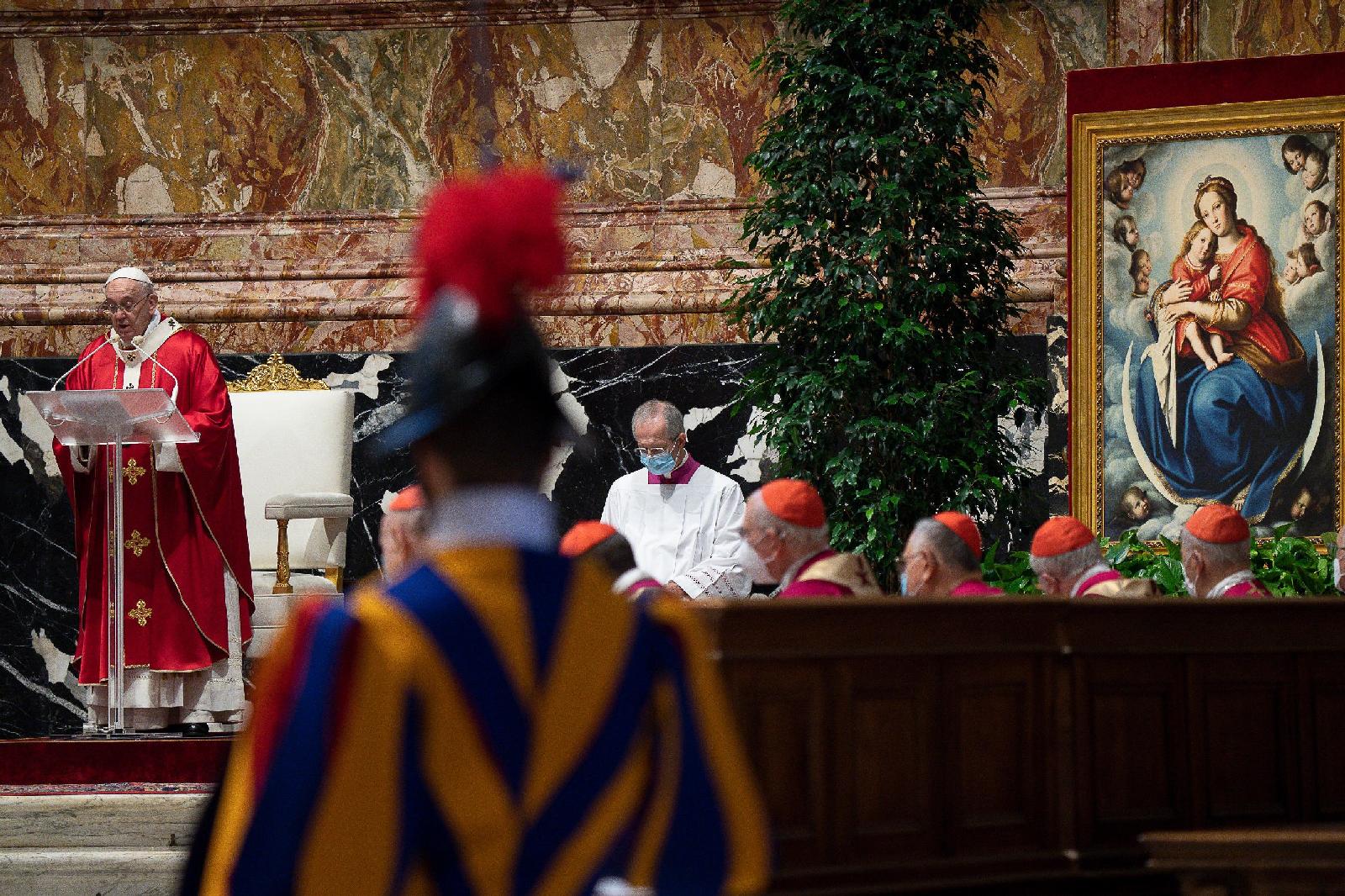Was the British response to the Argentine invasion of the Falkland Islands in 1982 morally justified? Was the international community's armed intervention to liberate Kuwait from Iraqi in 1990 also just? Pope Francis has questioned whether the traditional theory of Just War is still valid. The implication is that armed conflict was not justified in either case, and neither invasion should have been resisted. Really?
“We can no longer think of war as a solution,” he wrote in his latest encyclical Fratelli Tutti, published in October, “because its risks will probably always be greater than its supposed benefits... In view of this, it is very difficult nowadays to invoke the rational criteria elaborated in earlier centuries to speak of the possibility of a ‘just war’. Never again war!”
This statement has been hailed by pacifist groups as a major breakthrough, especially when he applies it to nuclear weapons. But Just War theory is essential in certain circumstances. The reason why the British did not summarily shoot their Argentine prisoners after the South Atlantic conflict, and why the overwhelming air attacks on retreating Iraqi forces were halted as the First Gulf War came to an end, has everything to do with the second leg of Just War theory, called jus in bello (justice during war).
Both interventions were purely defensive. Not to intervene would have been to acquiesce in an act of gross injustice. Nations must always be allowed to defend their territory from invasion: that is the first leg of just war theory, jus ad bellum (when it is just to go to war.) It is easy to think of a host of other examples – the Polish army's heroic fight against invading Nazi forces in 1939; the denial of air supremacy to the Luftwaffe over Southern England in 1940; and Nato's intervention in Kosovo in 1999, to stop the genocidal persecution of Albanians. There is even a Just War case for the First World War, which Britain joined in when Germany invaded Belgium. The charge of “waging aggressive war” was part of the indictment of the German war criminals at Nuremberg in 1945.
The laws of war, of which Just War theory was the precursor, have been repeatedly refined in international conventions like those of Hague and Geneva, the latest of which is still valid. But they would not have come into being had Just War theory not prepared the way, and provided them with a philosophical basis. Pope Francis needs to clarify whether he is rejecting the whole basis on which the international law on armed conflict has been built. And is he saying that the only moral response to an armed invasion is to submit to it peacefully? One wonders if the Malvinas crossed his mind while writing this.
The Pope was no doubt partly thinking of those military adventures which were wrongly described at the time as justified on Just War principles. Included among those would be the Anglo-American invasion of Iraq in 2003. War was “not a solution” to that crisis, though it is not so easy to say what the alternatives were. Pope Francis is also right to say that one of the chief problems with armed intervention, even to right an obvious wrong, is the unpredictability of the consequences. Such is human nature, even when interventions seem initially to be successful, it is only a matter of time before the presence of foreign forces starts to be resented, and a new conflict begins aimed at forcing them to withdraw – exactly what happened in Iraq. Invasions, like revolutions, can quickly lead to chaos and worse.
But these are nuances within Just War theory, not a reason to abandon it. It began as a way of limiting the brutality of war, not as a way of justifying it, and that is still necessary. If Pope Francis's remarks prove anything it is that Just War theory needs developing to keep it relevant. For instance there are those who use Just War theory to defend the idea of preventative or pre-emptive war – attacking an opponent before he attacks you. That is prohibited in international law unless sanctioned by the Security Council of the United Nations. It is, as the Iraqi case exemplified, wide open to abuse. Francis's deep scepticism is justified here. Pre-emption must be limited to an imminent and obvious threat that the whole world can clearly see developing; a condition so rare as to be almost impossible to meet.
If the waging of war under certain circumstances would be unjust, either because the pretext is not valid or the consequences would be so disproportionate, how does that apply to the mere threat to wage such a war? This is the issue raised by nuclear deterrence. The possessor of a nuclear weapon is in effect saying to a potential opponent, if you use your nuclear weapon against us, we may use ours against you, but not unless you do first. The strict Catholic moralist steps in at this point and declares that it is immoral to threaten to do something that it would be immoral to do. Hence nuclear deterrence is itself immoral.
This is where the argument becomes tortuous. If I wave a gun at someone who may be trying to break unto my property, giving them the impression that I might shoot them if they persist, am I as guilty as if I did actually shoot them? It only works if they believe I might. But it works whether the gun is actually loaded or not; or whether I would actually have shot them or not. I have deterred them. If the gun is not loaded, and if I knew I would not be using it whether it was or not, then I haven't intended to do something it would be wrong actually to do.
But if the gun is loaded then I have left open to myself the option of firing it. What is the morality of that? Is it an immoral intention? In the case of nuclear deterrence, is leaving open the option of using it, or creating in the mind of an enemy the likelihood of your doing so, a conditional intention which is immoral in itself? In which case, in what act precisely does the immorality lie? The whole point of deterrence is that it works on the perceptions in the mind of the hypothetical nuclear opponent, whoever they may be. Is it immoral to create such perceptions, when their purpose is in fact not to kill millions of that opponents' fellow citizens but to make them afraid that that might be the consequence of their own actions - the very opposite?
The late Sir Michael Quinlan often defended the case for nuclear deterrence in a Cold War context, but became less keen on it once that was over. Britain's continued possession of its Trident nuclear capability is strictly speaking a deterrent in reserve, as it is not aimed at any contemporary enemy but could be in the future should the occasion arise. But whether Cold War nuclear theory could be transferred wholesale to such new circumstances is a very moot point. Were Britain to be threatened by a madman (or mad regime) with a nuclear weapon, they might or might not be deterred by the prospect of a nuclear counter-attack. They might hold life so cheap that the massive loss of it did not concern them.
These are among the reasons why many people, including some at the top of the armed forces, are sceptical about the value of Trident, especially as it is such a drain on limited defence resources. The circumstances in which nuclear deterrence could help Britain defend itself against attack are now extremely remote. There are other hostile acts which are much more likely. Isn't that where scarce resources ought now to be directed? Some indication by Pope Francis that he understood the complexities of all this would have given additional authority to his remarks.



 Loading ...
Loading ...
What do you think?
You can post as a subscriber user ...
User comments (0)